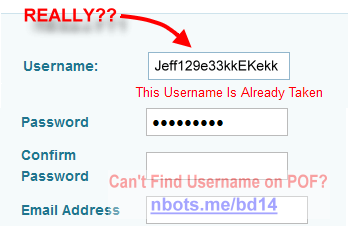Location tracking is a hot-button topic for anyone using social or dating apps. If you’ve found yourself searching, “Does Dating.com track your location?”—this comprehensive, fact-based guide is for you. We’ll explore how Dating.com uses your data, what location tracking functions exist, your privacy options, pros and cons of sharing your whereabouts, and safety strategies for smart online dating.
Table of Contents
-
Does Dating.com Track Your Location?
-
How Does Location Data Work on Dating Sites?
-
What Location Data Does Dating.com Collect?
-
Why Do Dating Apps Use Location Tracking?
-
How Accurate Is Dating.com’s Location Tracking?
-
Can You Control or Hide Your Location on Dating.com?
-
The Pros and Cons of Sharing Your Location
-
Is Your Data Safe? Dating.com’s Privacy Policy Deep Dive
-
How to Stay Safe and Protect Your Privacy
-
Frequently Asked Questions (FAQs)
1. Does Dating.com Track Your Location?
Yes, but with caveats: Like most major dating apps, Dating.com does use some form of location tracking to help connect you with local or regional matches. However, Dating.com is different from mobile-only “geosocial” apps like Tinder or Bumble—it’s a globally-oriented platform, and location is just one filter among many used in matchmaking.
2. How Does Location Data Work on Dating Sites?
Dating apps typically use your location for two main reasons:
-
To show you nearby matches (local search)
-
To display an approximate distance between you and potential matches
Most apps ask for permission to access your device’s location data (via GPS or IP address). Dating.com, which serves international users, often uses the city, state, or region you enter at signup—or your device’s IP—for general location matching, rather than precise, real-time GPS tracking.
3. What Location Data Does Dating.com Collect?
Based on terms of use and privacy policy analysis as of mid-2025:
-
Basic registration data: When you join, you provide a country, city, or region, which is visible to other users as part of your profile.
-
Device/usage info: When accessing the app or website, Dating.com may collect your IP address, potentially inferring broad location such as city or country.
-
Consent-based permissions: If you use Dating.com on mobile, it may request permission to access more precise location data. This is usually used to optimize match suggestions, not to publish your exact coordinates.
Note: Dating.com’s main matching algorithm relies less on GPS real-time tracking than many mobile-first competitors.
4. Why Do Dating Apps Use Location Tracking?
-
Efficient matching: Location filters narrow searches to regions you choose—helping you find realistically local partners, or intentionally match globally.
-
User safety: Precise location is never shared publicly. Only the general area, city, or region is visible to other users.
-
App improvement: Apps collect location data to boost speed, suggest matches, or prevent scams.
5. How Accurate Is Dating.com’s Location Tracking?
On Dating.com, accuracy is generally low to moderate:
-
Users typically see “City, Country,” not your street address or exact location.
-
Unless you opt-in to location services (on mobile), your location is based on:
-
What you declare at signup
-
Your IP address or general device location
-
Result: Other users cannot see your pinpointed address, but may be able to view your city or region.
6. Can You Control or Hide Your Location on Dating.com?
Yes.
-
You can change your location to another city, region, or country at any time via your profile settings, making it possible to meet matches in places where you want to date or travel.
-
On mobile, you can choose NOT to give the app location permissions.
-
Dating.com’s privacy settings allow you to hide certain information, but your “declared” location (city/country) is generally part of your public profile.
-
For greater anonymity, use only general region names and avoid hyper-local identifiers.
7. The Pros and Cons of Sharing Your Location
Pros:
-
Matches are more relevant to your goals (local vs. long-distance).
-
Boosts chance of meeting people in your area or target region.
Cons:
-
May make you easier to identify in smaller towns (if paired with your first name or workplace).
-
Disclosing location, even at city level, could be risky if you’re concerned about privacy or security.
Tip: Use major city names if you live in a rural area and wish to preserve anonymity.
8. Is Your Data Safe? Dating.com’s Privacy Policy Deep Dive
Per Dating.com’s official privacy documents:
-
Your personal data is never published without consent.
-
You can delete or change information (including location) at any time directly in your profile settings.
-
Data is encrypted and covered broadly under GDPR, CCPA, or relevant global laws.
-
For complete profile/data erasure, follow provided steps in the “Manage Account” or “Delete Account” section.
-
Only city/region (not exact physical location) is visible to other users.
-
You have the right to request deletion or anonymization of your stored data at any time.
9. How to Stay Safe and Protect Your Privacy
-
Use the “privacy” or “visibility” controls in your account settings to hide or limit certain data.
-
Share only city/region if possible; never give out your full address or schedule up front.
-
Be mindful about what you share in chat—details like place of work, gym, or favorite local café can triangulate your location.
-
If using the mobile app, restrict it from accessing precise location services unless absolutely necessary.
If you wish to delete or hide location info, follow the official steps in Dating.com’s Help Center or Privacy Policy.
10. Frequently Asked Questions (FAQs)
Does Dating.com show my exact address?
No. Only your city or region is shown; your street address is never published.
Can I turn off location tracking?
You can decline location permissions and/or edit your profile to adjust location as desired.
Does Dating.com sell my location data?
Per the privacy policy, data is not sold to third parties for advertising, though aggregate data may be used for analytics.
Can I use Dating.com while traveling or planning a move?
Yes—just change your location within profile settings for more relevant matches.
Read More: How Can You Tell a Fake Profile on Dating.com? Unmasking Scammers and Staying Safe in 2025
Conclusion:
Dating.com uses your declared city or region for matchmaking—rarely, if ever, your exact GPS location—and gives you control over what’s shown through profile and device permissions. By understanding your privacy settings and staying informed, you can enjoy global dating with a strong level of safety and personal control in 2025.







[…] Read More: Does Dating.com Track Your Location? A 2025 Deep Dive Into Privacy, Safety, and User Control […]